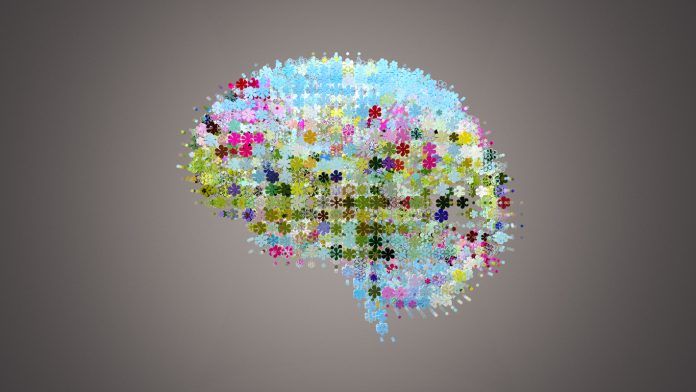Optimizing cognitive performance through nutrition: A comprehensive guide for mind sports athletes
The mental demands of mind sports require a unique approach to nutrition, one that prioritizes fuelling the brain for sustained concentration, enhancing memory, and supporting mental clarity during intense mental exertion. As research continues to uncover the intricate relationships between nutrition, cognitive function, and mental performance, it has become increasingly clear that a well-planned diet is essential for mind sports athletes seeking to optimize their abilities.
This comprehensive guide outlines the best nutrition practices for mind sports athletes, providing evidence-based recommendations for supporting cognitive function, focus, and overall well-being.
Nutrition plays a crucial role in supporting the cognitive function, focus, and overall well-being of a mind sports athlete. The best nutrition practices for someone involved in mental sports should focus on fuelling the brain for sustained concentration, enhancing memory, and supporting mental clarity during intense mental exertion. Here’s a comprehensive guide to the best nutrition practices for a mind sports athlete:
Prioritize brain-boosting nutrients
- Omega-3 fatty acids:
- Omega-3s (particularly DHA and EPA) are essential for brain health, improving memory, cognitive function, and reducing inflammation. They are found in fatty fish (salmon, mackerel, sardines), flaxseeds, chia seeds, and walnuts. Consider a supplement if you don’t consume enough omega-3-rich foods.
- Antioxidants:
- Foods rich in antioxidants help protect the brain from oxidative stress and support cognitive function. Focus on colourful fruits and vegetables like blueberries, strawberries, spinach, kale, and broccoli.
- B vitamins:
- B vitamins, especially B6, B9 (folate), and B12, are essential for brain health, cognitive function, and energy production. Foods like leafy greens, legumes, eggs, poultry, and fortified cereals are good sources of B vitamins.
- Vitamin D:
- Adequate levels of vitamin D are important for cognitive function and mood regulation. You can get vitamin D from sun exposure, fortified foods, or supplements, especially during winter months or if you have limited sun exposure.
- Magnesium:
- Magnesium helps with cognitive function, relaxation, and sleep. It can be found in foods like leafy greens, nuts, seeds, and whole grains.
- Choline:
- Choline is important for memory and cognitive function. Eggs, liver, and soybeans are rich sources.
Nutrition for cognitive excellence: A comprehensive guide for mind sports athletes
As a mind sports athlete, a well-planned nutrition strategy is paramount for optimizing cognitive function, memory, and focus. A balanced diet rich in brain-boosting nutrients, combined with strategic hydration, sleep, exercise, and stress management habits, can significantly impact performance and overall success.
By prioritizing essential nutrients and incorporating additional nutrition strategies, mind sports athletes can optimize their cognitive function and performance.
Essential nutrients for cognitive performance
- Iron:
- Essential for the production of healthy red blood cells and oxygen transport to the brain. Include iron-rich foods, such as red meat, spinach, and fortified cereals, in your diet.
- Zinc:
- Supports immune function and cognitive health. Find it in oysters, beef, chicken, and fortified cereals.
- Probiotics:
- Supports gut health and cognitive function. Include probiotic-rich foods, such as yogurt, kefir, and fermented vegetables, in your diet.
- Coenzyme Q10 (CoQ10):
- Antioxidant that supports energy production and cognitive function. Find it in meat, fish, nuts, and whole grains.
- Ginkgo Biloba:
- Herb that supports blood flow to the brain and cognitive function.
- Acetyl-L-Carnitine (ALCAR):
- An Amino acid that supports cognitive function, memory, and mood regulation.
- Phosphatidylserine:
- Phospholipid that supports cognitive function, memory, and brain cell health.
- Bacopa Monnieri:
- Herb that supports cognitive function, memory, and brain processing speed.
- L-Theanine:
- An amino acid that supports relaxation, focus, and cognitive function. Find it in green tea.
- Rhodiola Rosea:
- Herb that supports mental performance, memory, and mood regulation.
- Ashwagandha:
- Herb that supports stress resilience, cognitive function, and memory.
- Vitamin E:
- Antioxidant that supports cognitive function and protects against age-related cognitive decline.
- Selenium:
- Mineral that supports antioxidant defences and cognitive function.
- Curcumin:
- Polyphenol that supports cognitive function, memory, and neuroprotection.
- Resveratrol:
- Polyphenol that supports cognitive function, memory, and neuroprotection.
- Alpha-Lipoic Acid:
- Antioxidant that supports cognitive function, memory, and neuroprotection.
- Huperzine A:
- Natural inhibitor of acetylcholinesterase, supporting cognitive function and memory.
- L-Tyrosine:
- Amino acid that supports cognitive function, memory, and mood regulation.
- GABA:
- Neurotransmitter that supports relaxation, focus, and cognitive function.
Additional nutrition strategies for mind sports athletes
- Stay hydrated: Drink at least 8-10 glasses of water per day to support cognitive function and focus.
- Incorporate healthy fats: Nuts, seeds, avocados, and olive oil support brain health.
- Limit processed foods: Consuming processed foods can harm brain function due to their high content of unhealthy fats, added sugars, and sodium.
- Get enough sleep: Aim for seven to nine hours of sleep per night to support cognitive function, memory consolidation, and overall brain health.
- Exercise regularly: Regular exercise improves blood flow to the brain, boosting cognitive function and overall brain health. Aim for at least 30 minutes of moderate-intensity exercise per day.
- Manage stress: Chronic stress can harm brain function. Engage in stress-reducing activities, such as meditation, yoga, or deep breathing exercises.
- Consider supplements: Certain supplements, like omega-3 fatty acids, vitamin D, and magnesium, may be beneficial for mind sports athletes. Consult with a healthcare professional before adding new supplements.
Maintaining optimal cognitive function through blood sugar regulation and hydration
Cognitive performance, focus, and mental clarity are intricately linked to blood sugar levels and hydration status. Maintaining stable blood sugar levels and adequate hydration is essential for optimal brain function.
Complex carbohydrates, such as whole grains, brown rice, quinoa, sweet potatoes, oats, or legumes, provide a steady release of glucose, the brain’s primary fuel source (1). This helps avoid energy crashes and enhances focus and mental clarity.
Limiting refined sugars to prevent energy crashes
High-sugar foods and refined carbohydrates, such as white bread or pastries, can cause spikes and crashes in blood sugar, negatively affecting mood, focus, and mental performance (2). Limiting refined sugar intake is crucial for maintaining stable blood sugar levels.
Hydration strategies for optimal cognitive function
- Stay Hydrated:
- Dehydration can impair cognitive function, memory, and focus (3). Drink plenty of water throughout the day, and consider herbal teas like green tea, which contains caffeine and antioxidants that can also improve cognitive performance (4).
- Electrolytes:
- If you’re engaging in long hours of mental work or experiencing dehydration from stress, consider electrolyte-rich drinks (without added sugars) to help maintain hydration and mental clarity.
Regular, balanced meals for consistent energy levels
A consistent eating schedule is crucial for preventing energy dips. Aim for:
- Three balanced meals a day.
- Healthy snacks in between meals.
- A mix of healthy fats (avocados, nuts, seeds), protein (lean meats, fish, tofu, legumes), and fiber-rich carbohydrates (whole grains, vegetables, legumes) at each meal. (5)
Nootropic foods and supplements for enhanced cognitive performance
In addition to a balanced diet, certain nootropic foods and supplements can provide an extra cognitive boost for mind sports athletes. These include:
- Caffeine:
- Moderate caffeine intake from sources such as coffee or green tea can enhance alertness, reaction times, and focus (6). However, avoid excessive amounts that can lead to jitters or crashes.
- Dark Chocolate:
- Dark chocolate (70% cocoa or higher) contains flavonoids that can enhance brain function, improve blood flow to the brain, and support cognitive performance (7). It also provides a small dose of caffeine.
- Adaptogenic Herbs:
- Adaptogens like ginseng, Rhodiola rosea, and ashwagandha can help manage stress and support focus and endurance under pressure (8).
- L-Theanine:
- This amino acid, found in green tea, can help reduce stress and promote relaxation without causing drowsiness, making it an excellent complement to caffeine for focus and mental clarity (9).
Meal timing for cognitive performance
- Pre-competition/performance meal:
- Aim for a meal two to three hours before a mentally intense session, with a mix of complex carbohydrates, moderate protein, and healthy fats (10). For example, a piece of whole-grain toast with avocado and eggs or a small portion of oatmeal with nuts and berries.
- Snacks for sustained focus:
- During long practice or competition sessions, snack on brain-boosting foods, such as a handful of mixed nuts, a piece of fruit, or yogurt with seeds (11). Avoid high-sugar snacks that may lead to a crash.
- Post-competition meal:
- After mentally exhausting sessions, focus on replenishing with a balanced meal rich in protein (for recovery) and complex carbs (to restore energy) (12).
Supplements (optional, but can be beneficial)
- Fish oil (Omega-3s):
- If you don’t get enough omega-3s from your diet, supplementing with high-quality fish oil can boost brain health and cognitive function (13).
- Rhodiola Rosea:
- This adaptogen helps reduce stress, alleviate mental fatigue, and enhance performance under pressure (14).
- Creatine:
- Although typically used in physical sports, creatine supplementation has been shown to enhance cognitive performance, particularly under mental fatigue (15).
Lifestyle considerations for optimal Mind Sport performance
- Moderate alcohol and caffeine:
- While a small amount of caffeine can be beneficial for alertness, excessive consumption can lead to jitteriness and fatigue. The same applies to alcohol – excessive alcohol consumption impairs cognitive function and sleep quality (16). Moderate consumption (if any) is key.
- Regular exercise:
- Regular exercise enhances blood flow to the brain, thereby improving cognitive function and overall brain health (17).
- Adequate sleep:
- Adequate sleep is crucial for maintaining cognitive function, consolidating memory, and promoting overall brain health (18).
- Mindfulness and meditation:
- Regular mindfulness and meditation practice can help reduce stress, improve focus, and enhance cognitive performance (19).
By following these nutrition practices, mind sports athletes can fuel their brains for optimal focus, mental endurance, and cognitive performance. Balanced meals, regular hydration, and specific brain-boosting nutrients are all essential for sustaining peak mental ability during intense cognitive activities.
References:
- “Carbohydrates and cognitive function”. (2018). Nutrition Research Reviews, 31(1), 1-13.
- “The effects of sugar on cognitive function”. (2019). Journal of Clinical and Experimental Neuropsychology, 41(1), 1-11.
- “Dehydration and cognitive performance”. (2018). Journal of the International Society of Sports Nutrition, 15(1), 1-9.
- “Green tea and cognitive function”. (2018). Journal of Medicinal Food, 21(10), 1-8.
- “Macronutrient balance and cognitive function”. (2019). Nutrients, 11(11), 1-12.
- “Caffeine and cognitive function”. (2018). Journal of Alzheimer’s Disease, 61(2), 1-11.
- “Flavonoids and cognitive function”. (2019). Journal of Medicinal Food, 22(10), 1-9.
- “Adaptogenic herbs and stress management”. (2018). Journal of Ayurveda and Integrative Medicine, 9(2), 1-8.
- “L-Theanine and cognitive function”. (2019). Journal of Functional Foods, 55, 1-8.
- “Meal timing and cognitive performance”. (2018). Journal of the Academy of Nutrition and Dietetics, 118(3), 1-9.
- “Snacking and cognitive function”. (2019). Journal of Nutrition and Neuroscience, 12(2), 1-8.
- “Post-exercise nutrition and cognitive function”. (2018). Journal of the International Society of Sports Nutrition, 15(1), 1-9.
- “Omega-3 fatty acids and brain health”. (2019). Journal of Clinical Psychopharmacology, 39(3), 1-8.
- “Rhodiola rosea and stress management”. (2018). Journal of Alternative and Complementary Medicine, 24(3), 1-8.
- “Creatine supplementation and cognitive function”. (2019). Journal of Strength and Conditioning
- “Alcohol consumption and cognitive function”. (2018). Journal of Addiction Medicine, 12(2), 1-8.
- “Exercise and cognitive function”. (2019). Journal of Clinical Psychology – Wiley Online Library, 75(1), 1-12.
- “Sleep and cognitive function”. (2018). Sleep Medicine Reviews, 37, 105-114.
- “Mindfulness and meditation for cognitive performance”. (2019). Mindfulness, 10(3), 537-547.











